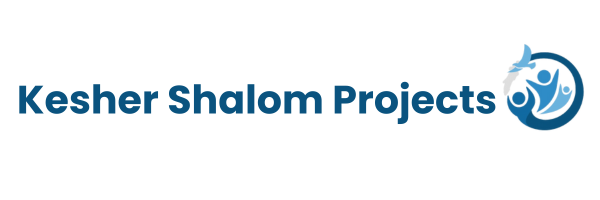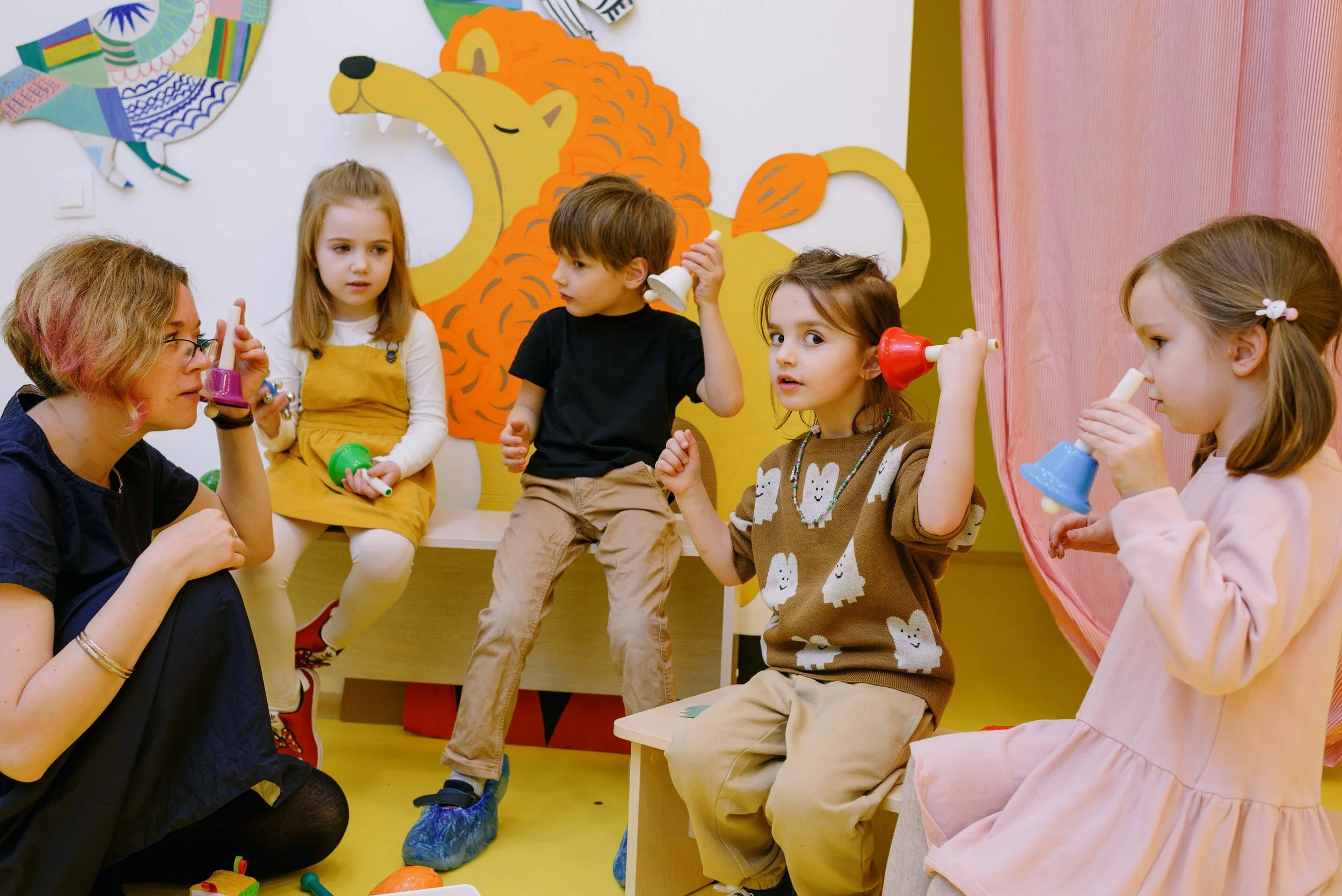Navigating Trauma: A Gentle Guide for Jewish Communities from a Jewish Trauma Therapist
Recently, the world has been marred by many events that have deeply affected us all. For Jewish individuals and communities, these challenges have taken on a profound and unique form. The echoes of historical pain, stemming from a legacy of struggles, persecution, and resilience, reverberate through the generations. This historical trauma, combined with the intricacies of our contemporary reality, has created a tapestry of challenges that sometimes feel insurmountable.
Today's world is a complex web of political, social, and cultural dynamics. Amid these complexities, Jewish communities find themselves navigating a myriad of emotions – from fear and sadness to anger and confusion. The rise in antisemitism, conflicts in various parts of the world, and the constant news cycle detailing incidents of hate can be overwhelming. It's not just about the immediate impact of these events; it's also about the emotional weight carried from the past, a burden that many continue to bear.
But here's the thing: you are not alone in this journey. I understand the depth of these challenges and am here to extend a helping hand. This blog is a safe space, a digital haven where you can find solace, understanding, and practical guidance. The aim is to provide you with simple, actionable ways to cope and heal, explicitly tailored to the experiences faced by Jewish communities. Together, we can explore strategies to process these emotions, build resilience, and find hope amidst the chaos.
So, dear reader, as we navigate this intricate tapestry of emotions and historical echoes, remember that you are part of a strong, resilient community. Together, we will face these challenges head-on, supporting one another every step of the way. Let's embark on this healing journey together, embracing our shared strength and finding light in the darkness.
Acknowledge Your Feelings
First and foremost, let's get one thing straight: it's absolutely okay not to be okay. In the face of the challenges and traumas experienced by Jewish individuals and communities, it's natural to feel a whirlwind of emotions. Whether you're grappling with anger, anxiety, sadness, or a confusing blend of everything in between, your feelings are entirely valid. Emotions are not black and white; they're complex, messy, and often overwhelming. And that's okay.
Acknowledging these emotions is the first step toward healing. Recognizing your feelings, even the difficult ones, is a sign of strength, not weakness. It's a testament to your resilience and your ability to confront the harsh realities of the world and still find the courage to face each day. You don't have to put on a brave face or pretend everything is fine when it's not. Embracing your emotions, no matter how raw or intense is a crucial part of the healing process.
The power of talking about your feelings cannot be emphasized enough. Sharing your emotions with trusted individuals – whether friends, family or a therapist – provides a safe and non-judgmental space for expression. It's a chance to release the pent-up thoughts and feelings that weigh you down. In these conversations, you may find understanding, empathy, and support. Sometimes, simply putting your emotions into words can provide relief, as if you're unburdening your soul.
Friends and family who genuinely care about you will want to lend an ear, understand your perspective, and offer a shoulder to lean on. They might not have all the answers, but their presence and willingness to listen can be incredibly comforting. And if you feel that your emotions are too overwhelming or complex to share with loved ones, professional therapists are trained to help you navigate these feelings. They offer a confidential space where you can express yourself openly and work through your emotions at your own pace.
If you feel like you can’t talk with friends or family because they, too, are overwhelmed, journaling is another safe way of expressing your feelings. Getting your feelings out is the goal, whether to another person or on paper. Expressing your feelings allows them to stop swirling around in your head, offering relief and a sense of release.
Remember, reaching out for support is not a sign of weakness; it's a sign of courage and self-awareness. By acknowledging your emotions and seeking help, you are taking active steps toward healing. Embrace your feelings, talk about them, and allow yourself the space to process them. In this journey toward healing, your emotions are not obstacles but stepping stones, guiding you toward a place of understanding, acceptance, and, ultimately, inner peace.
Seek Connection
In times of adversity, our community is a beacon of hope and support. It's a powerful reservoir of strength, wisdom, and shared experiences. Your fellow community members understand the unique challenges you face, and they can provide a level of empathy and understanding that is unparalleled. Connecting with others who share your background and history can bring immeasurable comfort and a profound sense of belonging.
1. Shared Understanding: Have you ever met another person, one whom you didn’t know, and when you discovered that you’re both Jewish, felt that instant connection? Shared a look that said, “I get you”? When you connect with fellow community members, there's an unspoken understanding that goes beyond words. It's the shared history, the common traditions, and the collective memory of your community. This shared understanding creates a safe space where you can express your thoughts and feelings without the fear of being misunderstood.
2. Emotional Support: In times of distress, emotional support is invaluable. Your community members can offer a listening ear, a comforting word, or a virtual shoulder to lean on. Sharing your experiences and listening to others can create a bond that strengthens the entire community. Together, you can navigate the stormy seas of emotions, finding solace in the knowledge that you are not alone.
3. Empowerment: Engaging with your community empowers you. By participating in virtual events, online discussions, or support groups, you actively contribute to the collective strength of your community. Your voice matters, and your experiences are valuable. In these interactions, you can find inspiration, learn from others' coping strategies, and discover new ways to face challenges.
4. Sense of Belonging: In a world that sometimes feels chaotic and alienating, your community provides a sense of belonging. It's a reminder that you are part of something bigger than yourself, a rich tapestry of culture, history, and shared values. Feeling connected to your community fosters a sense of identity and pride, reinforcing your resilience in the face of adversity.
5. Collective Resilience: When individuals within a community support each other, the entire community becomes stronger. This collective resilience enables you to face challenges head-on, knowing you have a network of people who understand, care, and stand together in solidarity. Together, you can overcome obstacles, heal wounds, and emerge stronger as a community.
So, reach out to your fellow community members. Attend virtual gatherings, engage in meaningful conversations, and embrace the support that your community offers. In these connections, you will find not only strength but also a renewed sense of hope and a reminder that, no matter how tough the journey, you are surrounded by people who care. Together, you can weather the storm and emerge on the other side, stronger, wiser, and more united than ever before.
Practice Self-Care
Self-care is not selfish, and it’s not a luxury; it's a necessity, especially during challenging times. Here's why taking time for yourself and engaging in activities that bring you joy and relaxation is essential:
1. Recharge Your Batteries: Life can be draining, especially when you're dealing with trauma and challenging circumstances. Taking time for self-care allows you to recharge your physical, emotional, and mental batteries. Just like a phone needs to be recharged to function optimally, you need moments of relaxation and joy to replenish your energy. If your phone battery were at 10%, you’d likely run around looking for a charger, but when you’re down to 10%, what do you do? Treat yourself as well as you treat your phone.
2. Reduce Stress: Engaging in activities you love, whether it's reading, walking, yoga, or pursuing a hobby, triggers the relaxation response in your body. This response counteracts the stress hormones, helping you feel calmer and more centered. By reducing stress, you enhance your overall well-being and resilience in the face of challenges.
3. Enhance Mental Clarity: Stepping away from the chaos of daily life and dedicating time to yourself provides mental clarity. It allows you to distance yourself from overwhelming emotions and gain perspective. In these moments of tranquility, you might find solutions to problems that seemed insurmountable before. Clearer thinking leads to better decision-making and a stronger ability to cope with difficulties.
4. Improve Emotional Well-being: Engaging in activities that bring you joy stimulates the release of endorphins, the body's natural feel-good chemicals. These endorphins promote an overall sense of well-being and can even temporarily relieve pain. When you invest in your emotional well-being, you build emotional resilience, allowing you to better handle the challenges that come your way.
5. Boost Self-Esteem: Prioritizing self-care sends a powerful message to yourself – that you are worthy of love, care, and attention. As you indulge in activities that bring you happiness, you reinforce your self-worth. This boost in self-esteem can positively impact your confidence and your ability to face challenges with a more positive mindset.
6. Promote Physical Health: Engaging in activities like yoga, walking, or other forms of exercise not only relaxes your mind but also benefits your physical health. Regular physical activity improves cardiovascular health, boosts the immune system, and enhances overall stamina. When your body feels good, it positively influences your mood and mental well-being.
7. Create Balance: Self-care helps you balance your responsibilities and your personal needs. It reminds you that you are not defined solely by your challenges; you are a multifaceted individual with diverse interests and passions. Embracing these aspects of yourself promotes a sense of fulfillment and balance in your life.
In essence, self-care is a lifeline during challenging times. It allows you to step back, breathe, and find moments of joy amid the chaos. Remember, these moments of self-indulgence are not selfish; they are acts of self-love and self-preservation. By nurturing your well-being, you equip yourself with the strength and resilience needed to face the world, one rejuvenating moment at a time.
Limit Exposure to Triggers
Living in the digital age means being constantly connected to a stream of news and information. While staying informed is important, it's equally vital to safeguard your mental and emotional well-being from the overwhelming influx of often distressing news. Here's why and how you can manage your news consumption in today's digital world:
1. Information Overload: The digital era offers a constant flow of news updates, often bombarding us with a barrage of distressing information. This influx of negative news can lead to heightened anxiety, stress, and a feeling of helplessness. Being exposed to distressing content repeatedly can take a toll on your mental health.
2. Impact on Mental Health: Consuming excessive negative news can lead to a phenomenon known as "headline stress disorder." This term refers to the anxiety and worry caused by the constant exposure to distressing news headlines. It can disrupt sleep patterns, increase stress levels, and contribute to feelings of fear and hopelessness.
3. Mindful Consumption: Limiting your exposure to news doesn't mean ignoring reality; it means being mindful of what you consume and how it affects your mental state. Designate specific times during the day to catch up on current events. Set aside a limited, predetermined period for news consumption, allowing you to stay informed without becoming overwhelmed.
4. Identify Triggers: Certain news topics, especially those related to traumatic events or social injustices, can trigger distressing emotions. Identify these triggers and be mindful of how they affect your mood. It's okay to skip news articles or reports that you know will deeply affect you. Prioritize your mental well-being above the need to be constantly updated on every piece of news.
5. Diversify Your Content: In addition to limiting exposure to distressing news, actively seek out positive and uplifting content. Balance your news consumption by exploring stories of resilience, kindness, and positive change. Follow social media accounts, websites, or news outlets that share inspiring stories and focus on the good happening in the world. Engaging with positive content can uplift your spirits and provide a much-needed perspective shift.
6. Practice Digital Detox: Consider taking regular breaks from social media and news websites. Set aside specific times during the day to unplug from your devices and engage in activities that bring you joy and relaxation. Use this time to connect with loved ones, read a book, practice a hobby, or simply enjoy the present moment without the distractions of digital media. I take a digital break every week during Shabbat. It’s 24 hours without any media bombardment (and yes, I realize the barrage is of my own making). It allows me to relax and reset. If you can’t go 24 hours, imagine what it might be like to have a Friday night dinner with friends and family without any digital distractions.
By being mindful of your news consumption and actively choosing positive, uplifting content, you are taking proactive steps to protect your mental well-being. Remember, staying informed is important, but your mental health matters just as much. By finding a balance and prioritizing your emotional well-being, you can navigate the digital age with resilience and a sense of inner peace.
Reach Out for Professional Help
1. A Safe and Confidential Space: Therapy provides a confidential and non-judgmental space to openly express your thoughts and emotions. In this secure environment, you can share your experiences, fears, and challenges without the fear of being misunderstood or criticized. The therapeutic relationship is built on trust, allowing you to explore your feelings and experiences authentically.
2. Expert Guidance: Therapists, especially those experienced in trauma and cultural sensitivities, possess a wealth of knowledge and expertise. They understand the complexities of trauma, including its cultural nuances, and can guide you through the healing process. Their specialized training equips them to address your specific needs and concerns, ensuring that you receive appropriate support. When looking for a therapist feel free to ask them what their experience is with treating trauma, and what training they’ve had that helps them treat trauma.
3. Tailored Coping Strategies: Each individual's experience of trauma is unique, influenced by their cultural background, personal history, and current circumstances. A skilled therapist can tailor coping strategies specifically to your situation. These strategies may include EMDR, cognitive-behavioral techniques, mindfulness practices, or other evidence-based interventions. By customizing therapeutic approaches, therapists can help you develop effective tools to manage your emotions and navigate challenges.
4. Validation and Empathy: Feeling heard and understood is a fundamental aspect of therapy. A culturally sensitive therapist can validate your experiences, acknowledging the impact of your cultural background on your emotions and perceptions. Through empathy and validation, you gain a sense of validation and acceptance, which can be incredibly healing.
5. Cultural Competence: Therapists experienced in cultural sensitivities have a deep understanding of various cultural backgrounds, traditions, and belief systems. This cultural competence enables them to approach therapy with sensitivity and respect, appreciating the unique factors that shape your worldview. Such therapists can bridge the gap between cultural differences, ensuring that your cultural identity is honored and integrated into the therapeutic process.
6. Healing at Your Own Pace: Healing is a deeply personal journey, and everyone progresses at their own pace. A therapist experienced in trauma and cultural sensitivities respects your pace of healing. They provide gentle guidance and support, allowing you to explore your trauma, process your emotions, and develop resilience in a manner that feels safe and empowering for you.
In essence, therapy with a culturally sensitive and trauma-informed therapist can be genuinely transformative. It offers a unique opportunity to explore your experiences, develop coping strategies, and embark on a healing journey tailored to your specific needs. By embracing the support of a therapist, you empower yourself to navigate the complexities of trauma, find inner strength, and ultimately, achieve a sense of peace and well-being.
Educate and Advocate
Knowledge is indeed a powerful tool, especially when it comes to creating understanding, empathy, and positive change within your community and beyond. Here's how educating yourself and others can make a significant impact:
1. Understanding the Issues: Educating yourself about the challenges your community faces gives you a deeper understanding of the root causes, historical context, and current struggles. This knowledge allows you to engage in informed discussions, identify areas that need attention, and advocate for meaningful solutions. Understanding the issues from multiple perspectives is the first step toward creating change.
2. Empowering the Community: When you educate others within your community, you empower them with knowledge. Informed community members are better equipped to make decisions, voice their concerns, and actively participate in initiatives to address community issues. Education fosters a sense of unity and purpose, encouraging collective action for positive change.
3. Challenging Stereotypes: Education challenges stereotypes and misconceptions about your community. By sharing accurate information and personal narratives, you can dispel myths, combat prejudice, and promote a more nuanced understanding of your community's culture, traditions, and values. This helps foster empathy and respect among diverse groups.
4. Building Bridges: Educating others outside your community fosters dialogue and understanding. By sharing your experiences and perspectives, you bridge the gap between different cultures and backgrounds. This cultural exchange promotes empathy and breaks down barriers, fostering a more inclusive society where diverse communities coexist harmoniously.
5. Raising Awareness: Education raises awareness not only within your community but also on a broader scale. By organizing awareness campaigns, workshops, or events, you can draw attention to specific issues, encouraging public discourse and garnering support from allies. Increased awareness often leads to heightened empathy and a collective effort to address the challenges faced by your community.
6. Advocating for Change: Armed with knowledge, you can become an advocate for change. Whether lobbying for policy reforms, organizing grassroots initiatives, or participating in community outreach programs, your informed advocacy carries weight. By speaking out against injustice and advocating for equitable treatment, you contribute to shaping a society that values diversity, tolerance, and understanding.
7. Inspiring Future Generations: Educating others sets an example for future generations. When they see individuals actively raising awareness and advocating for change, they are more likely to follow suit. Your actions can inspire young people to become informed, empathetic advocates, ensuring the continued progress of your community.
Remember, every effort to educate yourself and others, no matter how small, contributes to a more understanding and empathetic world. By sharing knowledge, challenging stereotypes, and advocating for change, you become a catalyst for positive transformation, leaving a lasting impact on your community and society.
Healing is a journey, not a destination.
Be patient with yourself, and don't hesitate to seek help when needed. Together, as a community, we can support one another and navigate the complexities of our world with resilience and hope.
Sending you strength, love, and healing vibes,
Robyn
If you’d like to learn more about working with me to help heal your trauma, schedule a free 20-minute consultation here.






